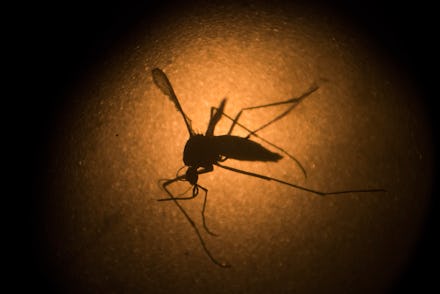A Zika Virus Prevention May Lie in the Genes of Mosquitos

Scientists may be one step closer to curbing the mosquito-borne Zika virus, which has swept across the Americas in recent months.
The virus has been linked to a birth defect called microcephaly, where babies are born with an abnormally small brain. We still don't have any vaccines or treatment for Zika, so scientists are going right to the source and trying to figure out how to stop mosquitos from spreading it.
The virus is spread by a species of mosquitos called Aedes aegypti, which is also responsible for spreading yellow fever and other tropical diseases. Scientists have tried sterilizing male A. aegypti mosquitos, with limited success. A company called Oxitec is working on a technique to genetically modify the males in a way that prevents their offspring from surviving to adulthood.
Now Zach Adelman and Zhijan Tu, researchers at Virginia Tech, have figured out a gene-editing technique to convert female mosquitos into males. This is a big deal because only the females are blood-sucking and capable of spreading the virus. The research is published in the journal Trends in Parasitology.
They identified a specific gene called the Nix gene on the Y chromosome that determines whether or not an A. aegypti mosquito becomes male. When they deleted the Nix gene, all the mosquitos became female. When they added the gene, the mosquitos grew male genitalia.
The researchers write that a combination of genetic modification and gene editing could dramatically reduce or even eliminate the female mosquito population.
The Zika virus is tricky to track. Only about one in five infected people show symptoms, which can include a fever, rash and red eyes. The Centers for Disease Control and Prevention has issued a warning to pregnant women or women who may become pregnant to avoid traveling to areas where the virus has spread, or to delay pregnancy if they live in an affected area.
h/t American Council on Science and Health